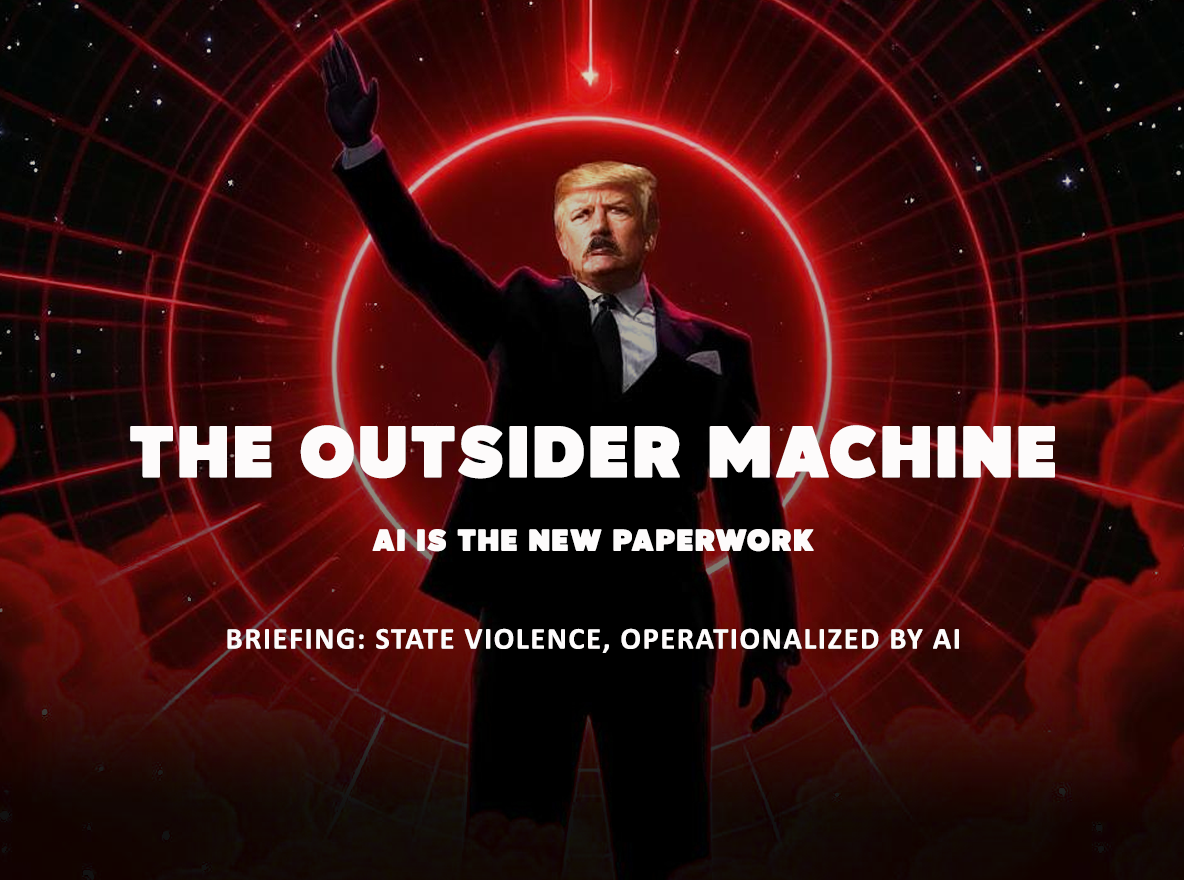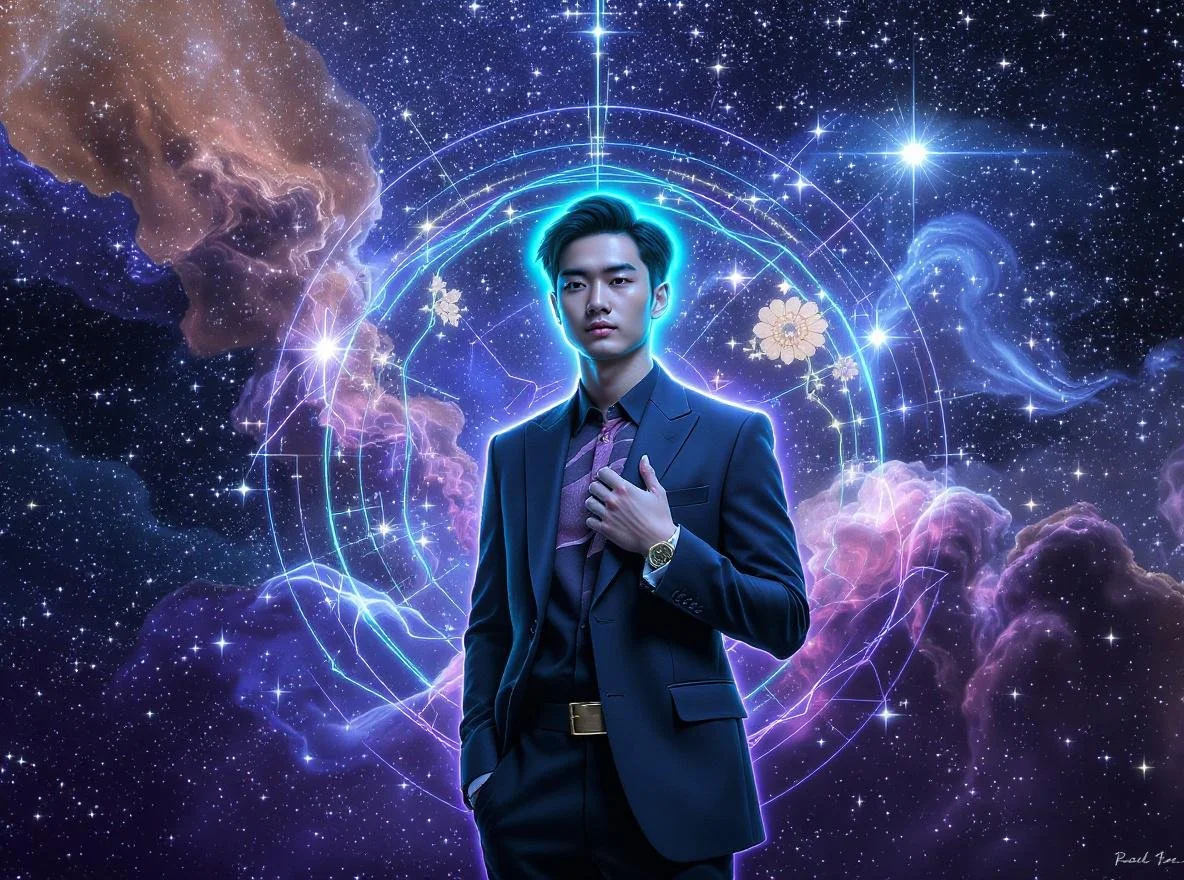
Thought Leadership
AI, Identity & Strategy
I write from lived experience in strategy, identity, and AI. Generative AI helps refine clarity and validate data , but the voice and perspective are entirely my own.

The Lazarus Illusion: How Exception Culture Breaks AI Systems Before Anyone Notices
The world does not end loudly. It ends cleanly.
The Lazarus Project isn’t about time travel. It’s about exception culture—what happens when reasonable people decide the rules apply to everyone else. This piece traces how optimization without dignity quietly hardens into harm, and why AI systems are already walking the same path.
Alternate excerpt, sharper:
The most dangerous systems don’t fail through misuse. They fail when they work exactly as designed—and the people inside them stop feeling where the rules cut. The Lazarus Project is a warning about AI we are already ignoring.

The Outsider Machine: State Violence, Operationalized by AI
Tyranny rarely arrives as a coup. It arrives as a workflow. The Nazis proved how fast an outsider story becomes administration. Today, the paperwork is digital: prioritization engines, field biometrics, and enforcement pipelines that treat due process as friction.

Structure Is Dignity & Relief: Why Ambiguity Breaks Teams
This week, I wasn’t reacting or firefighting. I was designing.
Not control, but structure. Not hierarchy, but clarity.
What I learned is simple: when leaders refuse to define the systems they run, ambiguity becomes a shield. People don’t grow. They contract. And the work slowly hollows out.
Structure, when built with intention, does the opposite. It gives people relief, dignity, and the space to do their best work.

Dial-Up Data, Streaming AI
Retailers have been admitting the same truth for years: our data is a mess. This piece is driven by lived experience and a recent post from Clare Kitching that pushed me to go deeper. AI is not a miracle layer that bypasses foundation work. It is a spotlight on what we built in the dial-up era: patched systems, inconsistent definitions, and human impact treated as an afterthought. The good news: this is our first real rebuild window since the internet. I share a practical 12-week approach to make data trustworthy, governable, and built to see people.

The Awareness Layer: How Systems Notice What They Are Doing to People
Organizational harm rarely begins with a dramatic moment. It starts with a shift in tone that no one names. A clipped answer. A softened voice. A message written at the wrong hour. These signals are not small. They are the early warnings of a system beginning to strain.
The Awareness Layer is what allows an organization to sense these changes before they turn into damage. Without it, collapse looks sudden. With it, the truth of what is happening becomes impossible to ignore.

When “AI Employees” Call Humans The Constraint: Why Podium’s Jerry 2.0 Feels So Gross
There is a special kind of nausea that hits when a founder calls people “the biggest constraint” and their new AI “the employee.” Podium’s Jerry 2.0 is sold as 24/7 help for local businesses, but the real pitch is simple: more revenue with fewer humans. This piece pulls apart why that story feels so slick, so scummy and what it reveals about how tech leaders really see the rest of us.

From essay to instrument: Emotional Metadata™ as a composite KPI
Most dashboards only care that the task was completed. Emotional metadata asks what the task completed in the person.
In this essay I introduce Human Layer Integrity, a composite KPI built from four scores: Dignity Experience Score, Legibility and Comprehension Index, Emotional Residue Score, and Edge Case Safety Index. Together they turn the human impact of AI, pricing, and organizational decisions into a structural metric that sits beside NPS and EBITDA, so harm stops hiding in the shadow of your numbers.

The Human Harm Layer: When Organizational AI Turns Outward to The Shopper
Retail AI does not begin at the edge of the app. It begins inside the organization, in the way leaders treat employees who raise concerns about harm.
The Human Harm Layer is the mechanism that carries those internal habits into external decisions about customers. When a worker is told to “go into listen mode” after naming how a pricing model will make life more expensive for poor Black neighborhoods, that is not just a bad meeting. It is Emotional Metadata the system chooses to ignore.
The same logic shows up later in delivery platforms and dynamic pricing schemes that quietly charge the highest tax on convenience to the people with the least slack. This essay maps how that harm travels, how it becomes code and what it will take for retailers to stop exporting workplace violence into customer experience.

A System Built on Silence: Part Six - Lessons the System Never Intended to Teach
This final chapter exposes the pattern beneath the stories: harm that was never random, collapse that was never personal, and a system that functioned exactly as designed. It traces how charisma without accountability becomes manipulation, how warmth without protection becomes theater, and how people are trained to normalize what should never have been normal. When the dust settled, one truth remained: the body told the truth long before the organization ever would.

A System Built on Silence: Part Five- The Psychology of Harm
When the noise finally stopped, the pattern came into focus. The employee had not failed to “handle stress.” They had been shaped by a system that rewarded harm, normalized confusion, and relied on their silence. Part Five dissects the archetypes that uphold that system and reveals the psychology beneath the collapse.